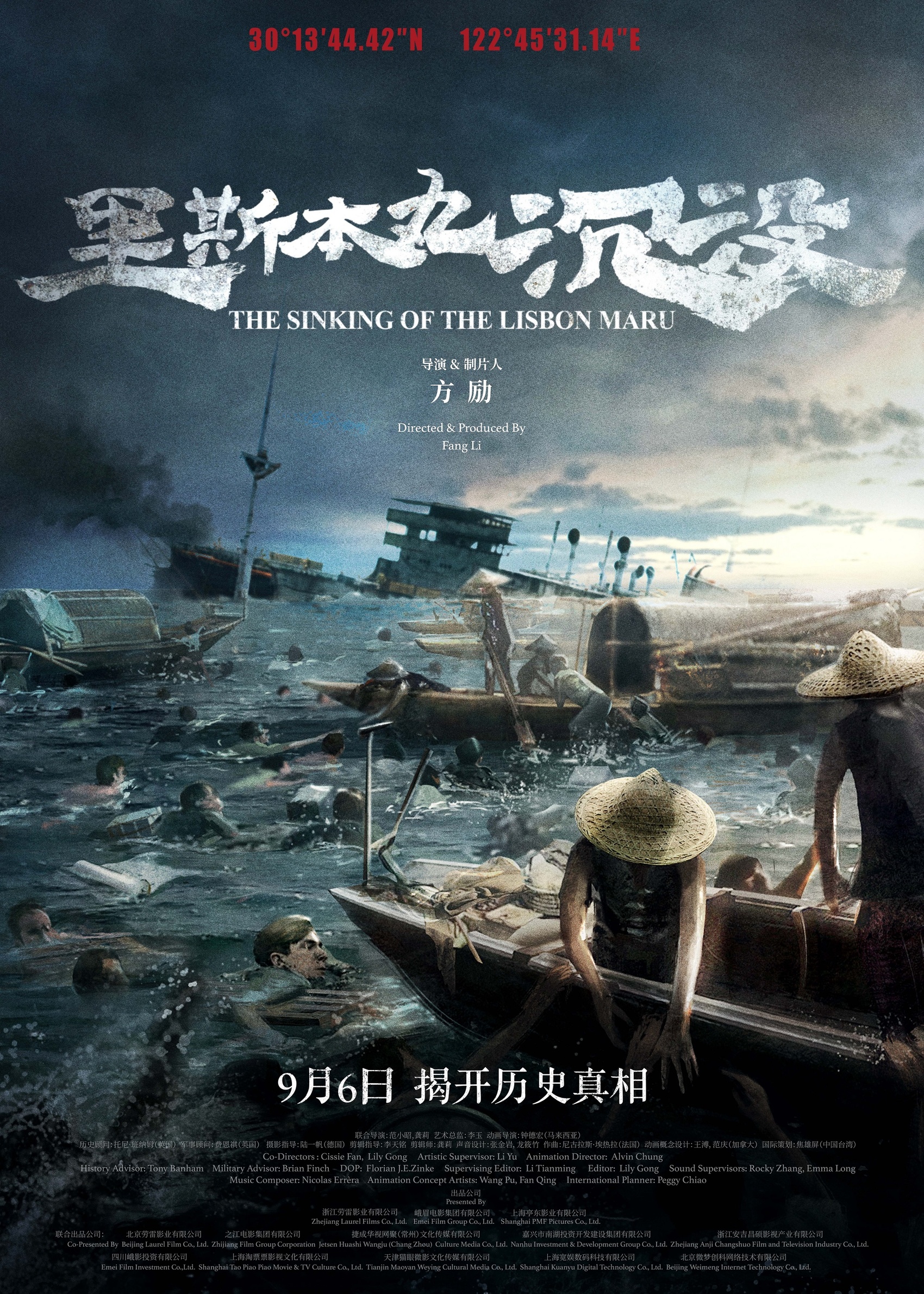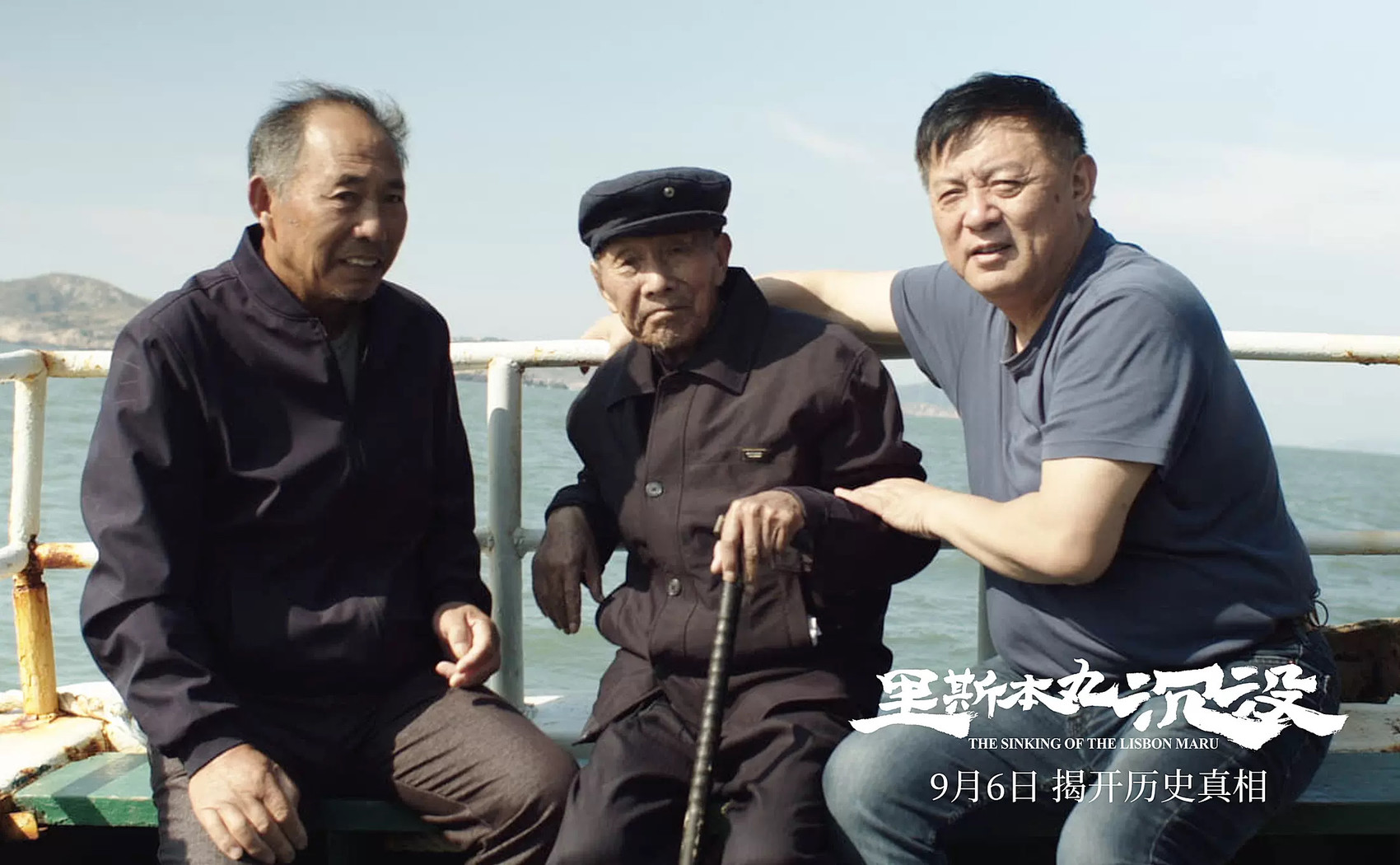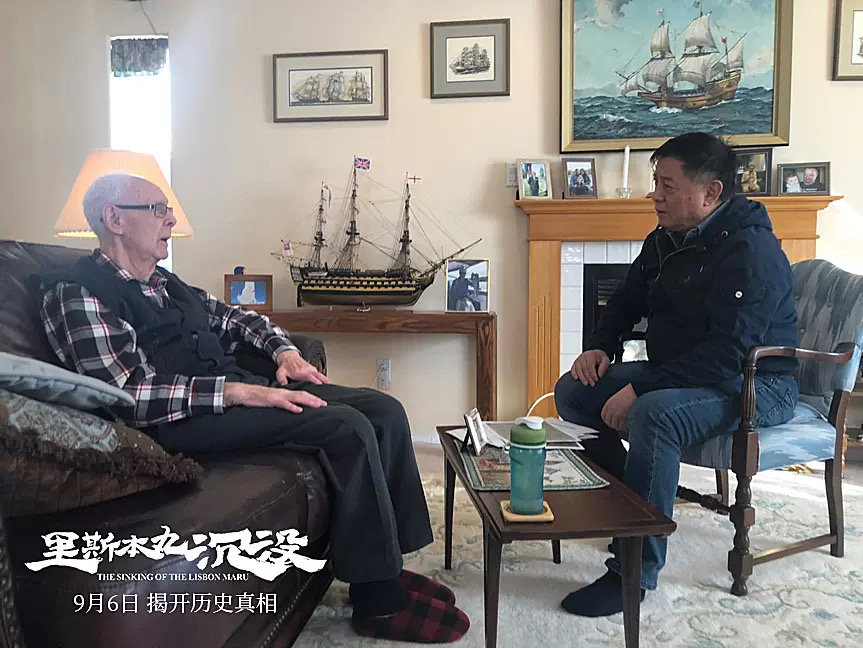The Sinking of the Lisbon Maru: Give Voice to History Hidden for 82 Years|Tianfu Weekend · Cultural Trend
2024-09-26 15:50:40 by SICC
With the screening of a film titled The Sinking of the Lisbon Maru on Sep.6, a history hidden for 82 years has finally found its voice.
Ten years ago, the wreck of the Lisbon Maru off Dongji Island in Zhejiang Province aroused the interest of Fang Li, a renowned filmmaker from Sichuan. Since 2016, Fang Li has devoted a considerable amount of energy and funds in manpower, equipment, witness searches, filming, and production during the eight years, culminating in the screening of his film The Sinking of the Lisbon Maru . According to Fang Li, he has financially ruined himself in the process.

Since its screening on September 6th, this film documentary, which seemed to lack box office appeal, has surprisingly received acclaim from audiences and the industry. Its ratings on platforms like Douban, Maoyan, and Taopiaopiao have all exceeded 9 points, making it the highest-rated domestic theatrical film of the year to date. Although the box office taking remains far below the RMB 150 million target needed to recover costs as of this writing, its producer and director Fang Li explained that he did not consider commercial returns when deciding to make the film.
I am extremely grateful to history for giving me the opportunity to fill a gap, Fang Li believed that he is predestined for this role as he is equipped with the ability to find wreckage and the filmmaking experience. If I don’t do this, I will feel sorry for this part of history.
Many films display the message This story is entirely fictional. Any similarity is purely coincidental at the beginning, while The Sinking of the Lisbon Maru is marked with This film is based entirely on historical facts.
In October 1942, the Japanese army requisitioned the passenger and cargo ship Lisbon Maru to transport more than 1,800 British prisoners of war back to Japan from Hong Kong. When passing through the waters near China’s Zhoushan, the ship was hit by the US army. As a result, 843 British prisoners lost their lives, and 384 were rescued by local fishermen. The British officers, soldiers, and government extended their heartfelt gratitude to the local people for their benevolence.
In 2014, when Fang Li and Han Han were filming The Continent on Dongji Island, they heard the story of the Lisbon Maru. Han Han then incorporated this story into the lyrics of the film’s theme song: A boat breaks down and no longer floats. A friend you knew turns into a riddle. Driven by curiosity, Fang Li, who has long been engaged in the system integration, research, development, and manufacturing of earth exploration and oceanographic survey technical equipment, led a team to conduct a survey in 2016. They accurately located the wreck and confirmed by technical means that it was indeed the Lisbon Maru’s wreckage.
Fang Li quickly learned that the two living witnesses of the Lisbon Maru accident, Lin Agen from Dongji Island and British veteran Dennis Morley, were both in their 90s. Out of a filmmaker’s intuition, I immediately realized that these witnesses might not be around much longer. Fang Li believed that both human testimony and physical evidence needed to be preserved, so he embarked on a journey of searching for witnesses in 2018.
In the first week in the UK, Fang Li and his team encountered countless heartbreaking stories. Some tombstones in family cemeteries bear only the grandfather’s name, and there are no bones or ashes buried beneath; some tombstones are inscribed with a simple line at the bottom speculating that the soldier may have drowned ; and one person had kept a letter from his older brother throughout his life, in which his brother entrusted the care of their mother and other family members to him, even though he was less than five years old at the time...

These stories brought a profound emotional impact on Fang Li. Since the Lisbon Maru accident affected a total of 1,816 families of British prisoners of war and 255 Chinese fisherman families, Fang Li was reluctant to interview only a few or a dozen of them. Where to find more involved families? He spent over RMB 2 million on full-page advertisements in the UK’s influential newspapers including The Sunday Times , The Guardian , and The Daily Telegraph , seeking British prisoners of war and their descendants involved in the Lisbon Maru accident.
The BBC (British Broadcasting Corporation) invited Fang Li for a live-stream interview, which evoked significant public repercussion. Following the interview, more than 380 descendants of the witnesses got in touch with Fang Li. What made Fang Li particularly surprised was that in addition to Dennis Morley, there was another surviving British prisoner of war rescued by Chinese fishermen: William Beningfield, who lives in the mountains of central Canada.
For two consecutive years, in 2018 and 2019, Fang Li focused on rescue-oriented interviews . Plenty of surviving prisoners of war who experienced the Lisbon Maru accident were often suffering from severe PTSD (Post-Traumatic Stress Disorder), or had a vague impression of that experience due to their old age. Therefore, Fang Li had to encourage them to open up and help them rediscover those lost memories at first.
This was the case with Dennis Morley. As Morley had never mentioned that experience to his family, his daughter was unaware of her father’s suffering until Fang Li’s first interview. At first, he was particularly reluctant to talk about it because it was too painful and full of nightmares. He didn’t want to recall that accident. Rather than starting with the Lisbon Maru, Fang Li gradually guided Morley to talk about his engagement in the Battle of Hong Kong. In the end, the more he talked, the more excited he became, because he trusted me. So he was willing to share his stories. He became a chatterbox and talked a lot.
The film crew visited William Beningfield for pre-filming a day before Fang Li’s visit, and advised him to have enough mental preparation over the phone for the old man did not remember anything. I don’t think it’s a good idea to ask questions using traditional news investigation methods, especially with the elderly because stiffly questioning him about the war and the Lisbon Maru doesn’t give him the time to organize his words and respond.

Based on his experience, Fang Li believed that the memory of youth is eternal and is the easiest way to evoke the interviewee’s emotions. I talked to the elderly about his handsome appearance, his first love, and his youth, which would put him in a good mood. Then, Fang Li asked Beningfield about his position in the army. Having heard that he was in charge of operating the Maxim machine gun, Fang Li nimbly posed a key question: As the Maxim machine gun is water-cooled, what should you do if the barrel is hot and there is no water? Beningfield laughed and replied, We pee! The old man got that memory at once, and went into a long monologue about it.
During the two years of interviewing the families of British prisoners of war, Fang Li kept a workbook, the first page of which was the underwater sonar image of the Lisbon Maru. Many children of British prisoners of war have no idea where their fathers are for years. I opened the workbook to show them the Lisbon Maru and the possible resting place of their fathers’ souls. They were very shocked and this initiated the conversation.
Fang Li refused to act as an indifferent spectator. In his eyes, the interviews were unlike traditional ones, and he had never preset questions, but approached their relatives and stories as a friend. When they see a Chinese who is highly empathetic with them, they are gradually willing to share anything with me. Today, quite a lot of the families of fishermen from Zhoushan and British prisoners of war that have been interviewed by Fang Li have taken him as a relative. They all love me, and I love them too.
Initially, Fang Li planned to produce a television documentary presented through interviews. With more and more materials being accumulated, he felt that it was necessary to let more people know the story of the Lisbon Maru, similar to how the Titanic story became known worldwide. Hence, Fang Li decided to bring this part of history to the big screen.
Fang Li did consider making a commercial film like Titanic and Dunkirk , but over 20 years of screenwriting experience taught him that no script could surpass true stories . A number of stories about the Lisbon Maru cannot be imagined by a screenwriter at home. So I think they are particularly precious because they are real, authentic, and have endured through history. The oral narratives and emotions of the people we interviewed are all contemporary and very relatable. They are not leg

